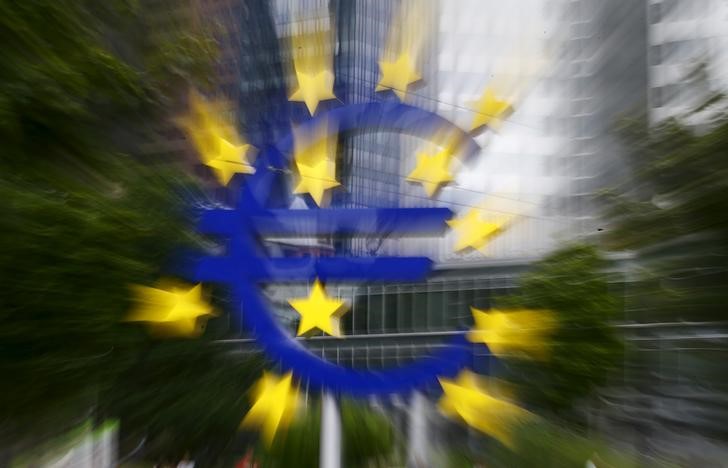Investing.com - Economic activity in the euro zone got off to a strong start in January, with employment rising at the fastest rate since 2000 amid rising optimism about the business outlook, preliminary data showed on Wednesday.
Markit said that its Flash Euro Zone Composite Output Index, which measures the combined output of both the manufacturing and service sectors rose from 58.1 in December to a near 12-year high of 58.6 in January, above forecasts for 57.9.
The flash services purchasing managers’ index improved to the 57.6 this month from 56.6 in December, beating expectations for a reading of 56.5.
The preliminary euro zone manufacturing purchasing managers’ index inched down to 59.6 this month from a final reading of 60.6 in December. Analysts had expected the index to drop to 60.4 in January.
On the index, a reading above 50.0 indicates industry expansion, below indicates contraction.
An acceleration of service sector growth to the fastest since August 2007 was partly countered by a slowdown in manufacturing output growth, though the latter remained very buoyant. The latest three months have seen the strongest factory output increase since 2000.
Activity was buoyed by a further marked and broad-based increase in new business.
Companies also grew more optimistic about the outlook for the year ahead in January, with business expectations reviving to an eight-month high.
Amid strong growth of new orders and improved confidence about the outlook, companies expanded their workforce numbers to the greatest extent since September 2000.
Commenting on the report, Chris Williamson, Chief Economist at Markit said, “The acceleration of growth pushes the survey data into territory consistent with the economy expanding at a super-strong quarterly rate approaching 1%."
"With such a strong start to the year, expect to see forecasters mark up their expectations of eurozone growth and inflation in 2018, and for policymakers to sound more hawkish,” he added.
EUR/USD was at 1.2345 from around 1.2330 ahead of the release of the data, while EUR/GBP was at 0.8761 from 0.8765 earlier.
Meanwhile, European stock markets were mostly lower. The EURO STOXX 50 fell 0.1%, Germany's DAX dropped 0.1%, France’s CAC 40 slumped 0.2%, while London’s FTSE 100 shed 0.4%.
